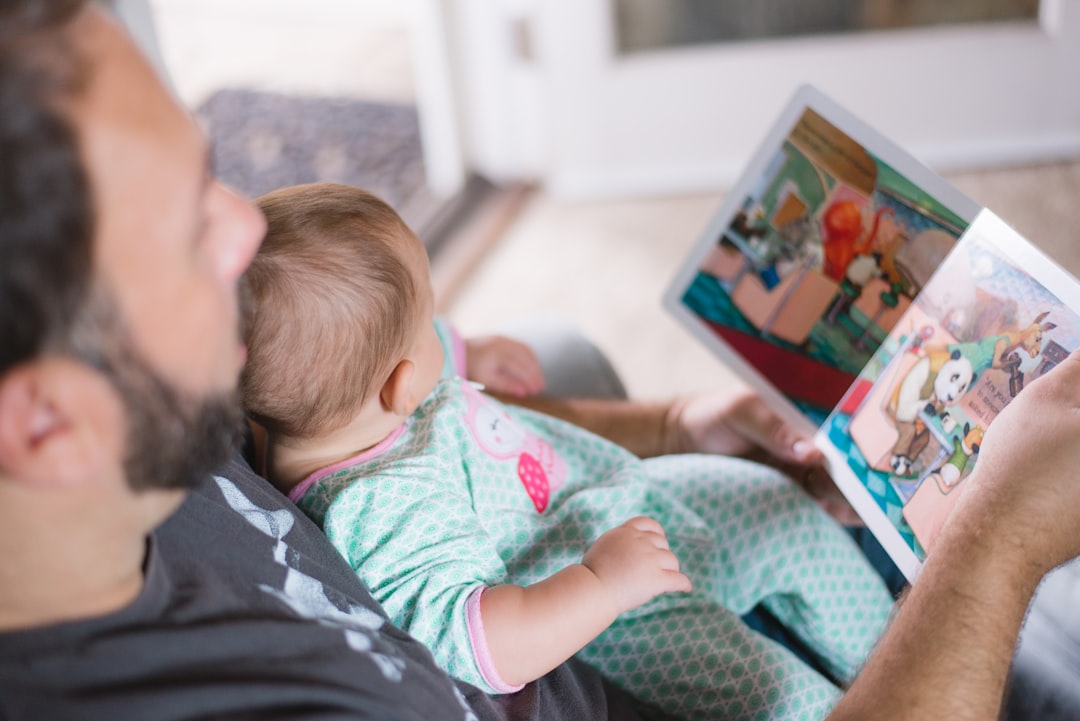Why Raising Readers Matters
And the science behind it
Hello everyone! Beck of Lessons Learned and I are co-authoring this post about the critical importance of raising readers and what we as parents and caregivers can do to support kids in developing strong reading habits.1

Adults with kids hardly need convincing that reading is an important skill for kids to have (especially if you subscribe to our newsletters, Readable Moments Book Club, and Lessons Learned; if you’re not subscribed to both, what are you waiting for? Hit the subscribe buttons below!). Reading is the single most enduring thing we learn that facilitates other types of learning and our understanding of the world. But it’s worth pausing to think about how we encourage our kids to read and foster the desire to read in the first place. At some point, our kids will leave the reading culture of our homes and, when that happens, we hope we’ve taught the fun of reading so that they have a lifetime of books to look forward to.
Why Reading Is Important
When we think about reading as a skill unto itself, the evidence is clear: A meta-analysis (a study that synthesizes the results of lots of other studies, in this case, 99 other studies) found that when children are exposed to book reading from an early age, it begins a ‘causal spiral’. Book exposure promotes language and reading development, and in turn, children who are more proficient in comprehension and reading skills will ultimately choose to read more. This study looked at every age from preschool to university and found that the gap between readers and non-readers widened every year, culminating in greater academic success in university for the readers. For example, in preschool and kindergarten, print exposure explained 12% of the variance in oral language skills, in primary school 13%, in middle school 19%, in high school 30%, and in college and university a whopping 34%.
In other words, reading begets reading. The more a child is read to and exposed to books, the more likely they are to engage with reading and want to read more. And this, of course, will lead to greater academic outcomes.
But to focus on only the academic angle is a pretty narrow view of the benefits of reading. Adult book lovers innately know that there’s a lot more to the benefits of reading than just academic achievement. I’m sure we can all point to a book that has had a profound impact on us and helped us move through the world in a new way.
In fact, there’s a LOT more to the benefits of reading than just academic prowess. Here are just a few of the benefits:
Reading is an antidote to stress. This is something that anecdotally has been true for us but something research also confirms: A study of children hospitalized in the ICU found that listening to a story for just 30 minutes reduced their levels of cortisol (stress hormone) and increased their levels of oxytocin (the love hormone). Additionally, they also reported less pain and used language that was more positive to describe their hospital stay. Similarly, over a whole academic year, a study of college students found that recreational reading was associated with reduced psychological distress. In other words, reading can help people cope with mental and physical health challenges by boosting resilience to stress.
Reading allows us to connect meaningfully with our fellow humans. Reading, especially fiction, makes us more empathetic and improves our ability to perceive and process social situations better (i.e. social cognitive skills). While the effect is small, reading fiction is positively associated with boosting socio-cognitive abilities including empathy (being able to recognize and feel another’s emotional state) and theory of mind (being able to understand another’s mental state and motivations for their behavior). In fact, using fMRI (a process where scientists look at the brain activity that occurs while people are performing a certain task), neuroscientists determined that the link between fiction reading and theory of mind capabilities was mediated by the activity in a certain network of the brain (called the default mode network - which is particularly involved in social cognition). In other words, reading fiction provides readers with the opportunity to strengthen this neural network, which in turn makes them better at being able to use theory of mind capabilities (again, being able to consider the mental state of others).
Reading makes us happier and maintains our cognitive state as we age. A study of older adults found that frequent fiction readers report greater life satisfaction and greater positive affective well-being. The same study also assigned these older adults to listen to audiobooks and found that the more absorbed in the audiobook they were (regardless of whether it was fiction or non-fiction), the more positive the impact on meaning of life and mental well-being scores, and the lower their levels of loneliness in the following two weeks. Additionally, a 14 year longitudinal study of almost 2000 older adults indicated that frequent reading (at least twice a week), halves the risk of cognitive decline over the long term, at all levels of educational attainment.
Reading helps us live longer! This was something that really impressed us. And thank goodness because it would be a huge disappointment if we aren’t able to get through our TBR list before we go! A longitudinal study of 3675 participants found that book readers experience a survival advantage - compared to non-book readers they experience a 20% reduction in mortality over the 12-year follow-up period of the study. This line from the study sums it up best: “These findings suggest that the benefits of reading books include a longer life in which to read them.”
So there are clearly huge and incredibly meaningful benefits to reading above and beyond academic achievement. Clearly, a love for reading leads to a much more fulfilling life and that’s something we definitely want to pass on to our children!
This sounds awesome, right? You can’t wait to get started. Yay! Keep reading to see how you can build a book culture in your home to encourage reading.
How To Encourage Reading
Now the fun part of actually implementing a reading culture in the home:
Read together.
You’re probably already doing this but this is the easiest and most effective way to encourage reading in kids of any age. According to a meta-analysis of 29 studies, reading aloud has a particularly strong effect on improving language skills. Reading to kids daily at 4-5 years of age has a lasting impact on reading and cognitive skills such that at age 10-11 the effect is equivalent to the child being approximately a whole year older.
The best way to go about this, per cognitive psychologist David Willingham, is to (1) choose books that are rhyme-heavy; (2) as you read with your kids, engage them by asking questions as you go, (3) show kids how much YOU enjoy reading and making it a fun option at times when they might become bored (like in the car, for instance).
For more ideas on how to make reading enjoyable, check out this post on 5 ways to make reading fun for everyone.

Have physical books.
Make them available and accessible throughout your home. Have lots of them everywhere! Literally, show kids how important books are by giving them valuable space in your home.
The strongest home environment and family correlation of children's reading (even over and above parent education and parental reading fluency) is the number of books in the home. While we can’t infer causality (that is, it could be that having more books allows kids more exposure to print, or that having more books may be reflective of parental values around reading, or more books may be reflective of children who already enjoy reading and therefore ask for more books), it does suggest that even parents who don’t consider themselves avid readers can influence their kids’ love of reading by ensuring that there are plenty of books available in the home. So even if you don’t consider yourself a bookworm, that doesn’t mean you can’t raise a kid to appreciate reading.
The single most effective pathway to fluent word reading is print experience. Anderson, Wilson, and Fielding (1988) monitored the independent reading habits of 10-11 year old children in the US, then estimated the number of words they were exposed to over the course of a year. Those at the 10th percentile of time spent reading were estimated to be exposed to approximately 60,000 words per year; those at the 50th percentile, 900,000 words; and those at the 90th percentile, more than 4 million words! That means that kids in the top 10% of readers are being exposed to 66 times as many words as those in the bottom 10%.
If you’re not sure how to get started, the first stop is a visit to your local library! Check out as many books as you can to start book exposure ASAP. And then, as you observe how your kids respond to certain books, think about how you want to build your home collection. Here are some ways you can start building your own personal library.

Be a model.
Once you have kids in your life you quickly learn that kids observe and absorb EVERYTHING. So to reaffirm that reading is an important, valued activity and skill, you’re going to have to demonstrate it. Show kids that you enjoy using your free time to read. Read for pleasure.
An analysis of PISA data looking at 15-year-olds in 5 European countries (totaling 52,711 participants) found a clear positive association between parents reading for pleasure and reading comprehension of the kids.
Similarly, a time use survey data from an Italian dataset looking at families with children ages 6-15, found that, on any given day, if children observed their parents reading the chances of them reading increased from about 5% to about 35%.
Kids imitate us, so we can inspire them to read simply by picking up a book and reading in their presence. Even perusing a cookbook has led to Sri’s kid running to read next to Sri with a book of her own.

No pressure.
Just keep in mind though that if you really want to raise a kid who loves to read, they need to be intrinsically motivated. If you’ve ever taken a psychology class, you’ll remember that intrinsic motivation trumps extrinsic motivation by a landslide.
A study of 4000 US students found that if the motivation comes internally (choosing to read because it is enjoyable, etc.) there are positive outcomes in terms of reading amount and reading comprehension. However, external motivation (bribing kids to read with stickers, money, etc.) has a negative association on reading amount and reading comprehension. In his book, Punished by Rewards*, Alfie Kohn suggests that the only suitable reward for finishing a book is picking up another one! Beck couldn’t agree more - her favorite part of finishing a book is perusing her TBR list for the next page-turner.
So, the moral of the story is to make reading as fun and natural as play is to kids! Choose books that are entertaining or have fun themes (hit the subscribe button below for kid’s book recommendations). Keep an eye on which books your kids enjoy and try to find ones that are similar.
Next Steps
Okay, you’re already doing these things or have just gotten started. Well, what’s next? The good news is you just keep doing what you’re doing and the benefits will begin to accumulate slowly but surely.
If you have kids who are younger than 7, maybe your mind is starting to tilt in the direction of teaching kids to read. That’s exciting and another chapter in building kids’ independence. But it isn’t something to rush.
We keep hearing a lot about the pressure towards reading at earlier and earlier ages. It’s unnecessary to push kids to read so early because in the grand scheme of things it really doesn’t matter. Two different studies found similar outcomes:
A review of correlation and intervention studies by Sebastain Suggate finds evidence for the “Luke effect”. Essentially, a focus on early reading (that is, teaching reading before age six or seven) shows only short-term effects that even out with time, such that by the time the child is 12 (or even earlier), their reading skills are not any better than those who learned to read later. Additionally, children who learn to read later acquire reading skills more readily (requiring about half as much formal instruction).
A large study looking at PISA scores across 55 countries, and the natural variability in school starting age (and therefore the age where formal reading instruction starts) found no evidence for an association between school-starting age and reading achievement at age 15. What does this mean? There is no need to push kids to read early! It does not benefit them in the long term. Any initial gains from learning to read early are lost later on.
The risk of pushing teaching to read too early or too hard is that it can backfire. It can rob the fun and joy out of it and be perceived as another pesky task or chore to complete.
If we have to choose between love for reading or learning to read, it’s no contest. The love for reading wins any day, every day. Reading can be taught and will be taught eventually but a love for reading is intangibly special. It’s a lot like learning to cook - anyone can learn to follow a recipe, but a truly great dish isn’t made with a recipe, it’s made with love, passion, and experience (which is why Grandma’s chicken soup or apple pie always tastes so magical!).
Like we said, we probably didn’t really need to convince you. But it helps to know why you should keep doing what you’re doing or why you should get started! Reading is life-changing. A child’s curiosity is insatiable and reading is the buffet that never ends. It is the freest passport there is–taking readers to new countries, imaginary worlds, and galaxies, backward in time or forward. They don’t have to become bookworms but if we can instill an appreciation for books, then that is the greatest gift we can give our kids.
*Thank you for using (at no additional cost to you) the affiliate links in this post! :-)
If a child has learning differences, this post may be helpful but not a complete way to encourage a love for reading. We recommend checking out these posts: CHADD’s How Can I Get My Child To Read For Pleasure and Dyslexic Advantage’s Cultivating A Love For Reading. Sri greatly enjoyed reading this (older) essay on Yale Center for Dyslexia and Creativity: Creating A Reading Culture by Kyle Redford.








WOW! This post is jam-packed with such great information and had me so excited to read with my kiddos! We have a big age spread in our house with the oldest at 12 and the youngest turns one tomorrow so we have all kind of books in the house and we are all big readers!!